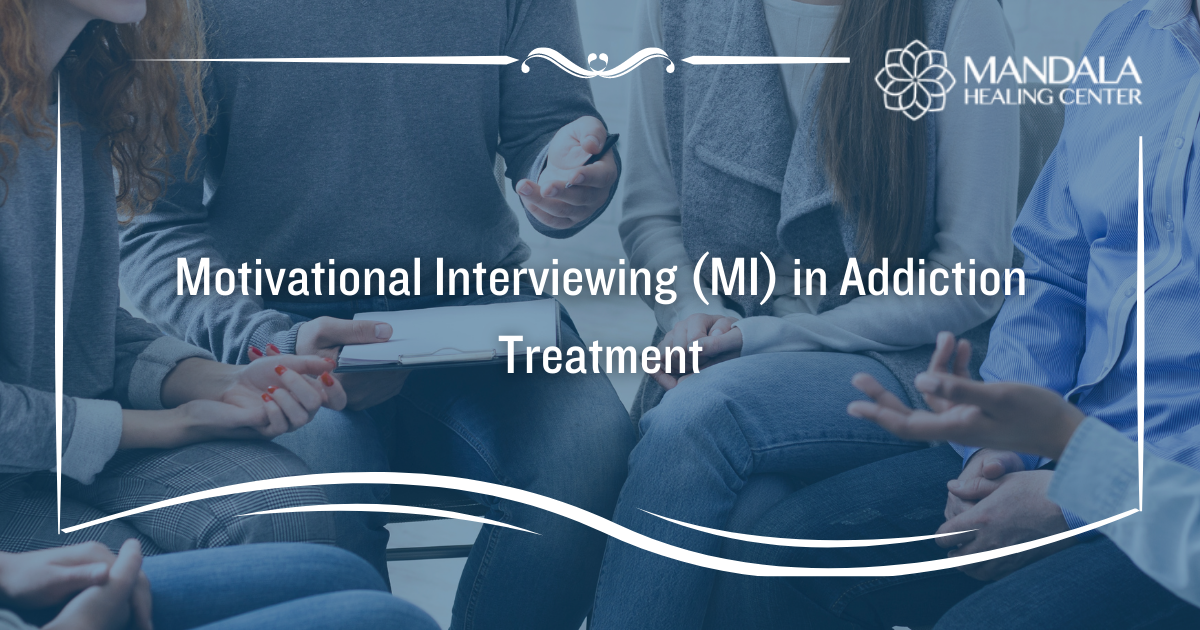Lack of motivation to quit using drugs or stick to one’s treatment plan can be one of the greatest barriers to overcome for people struggling with addiction. Even in the light of health issues, legal problems, relationship struggles, and other consequences of substance abuse, it can still be difficult to feel inspired or hopeful for a life in recovery.
Not having motivation can prevent people from seeking treatment, but it can also increase the risk of relapse. After all, failing to stick to one’s treatment plan and continue treating one’s addiction can cause someone to return to poor behaviors and substance abuse. As a result, an important part of treatment involves helping patients get motivated for recovery.
One of the most effective ways to promote self-motivation is a therapy called motivational interviewing or MI. Motivational interviewing, combined with other treatments, can be a very effective addiction treatment therapy.
What is Motivational Interviewing (MI)?
Motivational Interviewing (MI) is a therapeutic tool that was designed by Dr. William Miller and Dr. Stephen Rollnick. Their goal in developing MI was to inspire change in patients who feel reluctant to make real changes in their lives. While it does not focus on treating the root causes of addiction, it can encourage patients to set goals and continue moving forward in their recovery. When used for addiction treatment, MI is intended to be combined with other forms of therapy, such as cognitive behavioral therapy (CBT).
The idea behind MI is that motivation is a mindset that can be taught, encouraged, and improved. During MI therapy sessions, patients work collaboratively with the therapist and are encouraged to set their own goals rather than aim to work towards goals set for them by a therapist. This patient-driven approach can help individuals feel as though they are truly in control of their recovery and their lives.
The Four Steps of the Motivational Interviewing Process
Motivational interviewing uses four specific client-centered processes that are meant to help patients establish goals and formulate a plan to work towards them.[1] These four processes include:
- Engage – Build a trustful, respectful relationship between the therapist and patient so the patient feels comfortable in the therapy setting.
- Focus – Identify a main focus for the patient’s recovery by encouraging patients to recognize the things that are important to them.
- Evoke – Allow the patient to bring about their own arguments and motivation for change. While MI is mainly patient-driven, the therapist’s role is to bring attention to even the smallest desires to change and encourage the patient to acknowledge these desires.
- Plan – Encourage the patient to envision change and become willing to work towards change. Also, create an actionable plan to help the patient accomplish meaningful change. Patients must be able to practice healthy coping skills and use their knowledge from treatment in order to maintain long-term recovery.
While navigating through these four processes, therapists use a series of interpersonal communication skills known as OARS. OARS stands for:
- Open – Open refers to the practice of asking open ended questions. This allows patients to become more involved in the discussion.
- Affirming – Affirming, similar to affirmations, is meant to bring positive attention to the patients’ strengths and progress.
- Reflecting – Reflecting refers to reiterating or rewording something a patient has said in order to portray empathy or understanding.
- Summarizing – Repeat what was said back to the individual in a few sentences or less for understanding and reinforcement.
The purpose of using OARS in motivational interviewing is to facilitate clear, productive conversations between the patient and therapist.
Benefits of Using Motivational Interviewing in Addiction Treatment
Motivational interviewing is a great way to engage patients in the recovery process and it is often very useful for patients who have relapsed in the past or have not responded well to other forms of behavioral therapy. By pushing patients to identify and embrace their intrinsic motivations to get sober, MI can strengthen the ability to stay sober.
Other benefits of using motivational interviewing in addiction treatment include:
- Increase patient willingness to participate in treatment
- Improve patient and therapist collaboration and trust
- Reduce the right for relapse
- Help patients develop independence and motivation for all things in life
- Promote healthy lifestyle changes
Studies have shown that MI is up to 20% more effective than other treatments for alcohol addiction and can also result in improved outcomes in patients being treated for substance use disorder, mental illness, and behavioral issues.[2]
Start Your Recovery at Mandala Healing Center Today
At Mandala Healing Center, we use a wide range of behavioral and holistic therapies that are clinically proven to treat addiction and mental health. Each of our modalities is custom-tailored to meet the needs of each individual patient. With the help of evidence-based therapies and a multidisciplinary team of addiction professionals, anyone can achieve a substance-free life.
If you or a loved one are struggling with addiction, know that you’re not alone. We’re here to guide you to sobriety and be by your side every step of the way. Call now to speak with a team member about getting started.
References:












